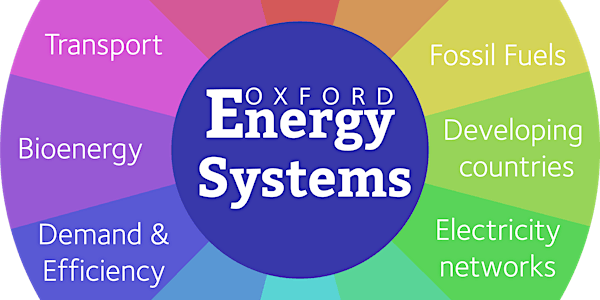
Registrations are closed
A link to Microsoft TEAMS will be sent to you 1 hour before the event. You may be asked to download the TEAMS programme. Please allow sufficient in advance for this to happen. Follow the prompts, and when you see the link that says 'Reply in TEAMS', click on this. You become a guest of TEAMS for this session. You will then arrive in the waiting room. Please mute your microphone, and wait for the facilitator to admit you to the event.
How do new things spread? The diffusion of digital low-carbon innovations
This talk discussesa range of new evidence on how digital goods and services spread through populations of adopters.
Date and time
Location
Online
About this event
In the past nine months we’ve all become familiar with how coronavirus spreads - how it’s passed between people, why it’s so infectious, how people vary in their susceptibility, and what role our social networks play. There are many analogies between these underlying mechanisms of virus transmission and the underlying mechanisms of innovation diffusion. In this talk, I present and discuss a range of new evidence on how digital goods and services spread through populations of adopters. I focus on a set of digital innovations in energy, homes, mobility and food that can help reduce carbon emissions if adopted at scale.
Drawing on the findings of a 4 year research project (silci.org) on the diffusion of these digital low-carbon innovations, I show how: (1) interpersonal contact and exchange is integral to the diffusion process; (2) the attributes of innovations shape their appeal to different consumer segments; (3) cosmopolitan and novelty-seeking innovation adopters have distinctive characteristics that set them apart from the mainstream; (4) the size, diversity, and structure of people’s social networks help define the roles they play in communicating new ideas. By understanding the mechanisms by which digital low-carbon innovations spread, we can also design measures for a post-coronavirus world to accelerate innovation diffusion in support of emission reduction goals.
Speaker: Dr Charlie Wilson is a researcher in the Tyndall Centre for Climate Change Research (UK) for which he co-leads the Accelerating Social Transitions research theme, and a Reader in the School of Environmental Sciences at the University of East Anglia. He is also a Visiting Research Scholar at the International Institute for Applied Systems Analysis in Vienna. Charlie’s research lies at the intersection between innovation, behaviour and policy in the field of energy and climate change mitigation, working at both a systems level and a micro level.